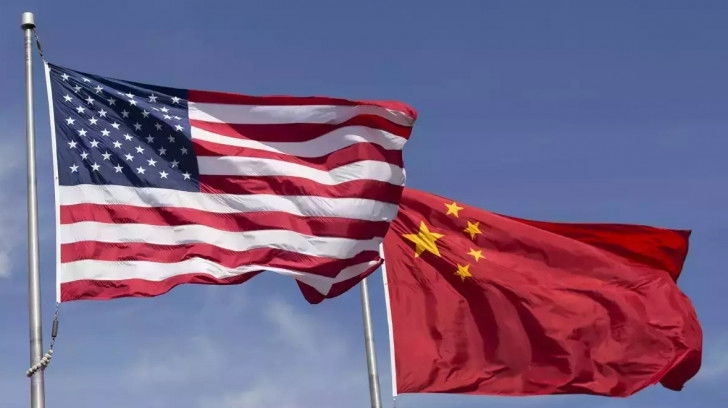America
US-China rivalry will not split the world, globalisation is here to stay: Study

Toronto, Feb 13
The rivalry between the U.S. and China, recently highlighted during the Chinese spy balloon crisis, is not going to escalate and split the world into two hostile camps and the era of globalisation isn't over yet, a study said on Monday.
Reports of globalisation's death are premature, according to researchers at the University of Waterloo, the University of British Columbia and the China Europe International Business School in Shanghai.
"The potential economic cost of doing this is too high for the U.S., China, their allies, and the entire world. The breakdown of globalisation ultimately hurts consumers, which we are all experiencing too well. Globalisation is not over," said Dr Victor Cui, a professor at Waterloo's Conrad School of Entrepreneurship and Business.
"We expect China's threat will slowly disappear - it is not sustainable," Cui added. "Once the fear of China's rise declines in the U.S., we expect the disengagement to slow down and even dissipate. We can be conservatively optimistic there will be changes."
The U.S. believes that the suspected Chinese surveillance balloon that it shot down on February 4 over Atlantic Ocean, was part of a wider effort by Beijing to spy on military assets in other countries, including India.
However, beyond economic realities, the researchers found that the U.S.-China rivalry is based, in part, on misunderstanding.
For example, China's intentions to seek 'self-reliance' were largely defensive while being interpreted in Washington's narratives as solely aggressive.
For their part, China's communist leaders bristled at what they saw as American attempts to limit China's growing economic and political power, said the researchers in a paper published in the Journal of International Business Studies.
The authors suggest that Washington may have overstated China's techno-nationalistic threat to the liberal world order for a few reasons.
First, China increasingly centralises top-down control over its innovation effort, which is unlikely to sustain its rapid technological advancement.
Second, China may not be able to continuously inject the funding required to sustain its technology innovation because of its continuing economic growth decline.
"Moreover, China also faces a growing shortage of young productive workers in the next decade due to its former one-child policy," they argued.
The researchers said that assumptions that China's rapid pace of technology innovation will accelerate, and that China may establish its own technological hegemony and surpass the U.S. in some strategic fields are overstated.
The researchers argued the entire world would benefit if the U.S. and China acted as partners instead of rivals, as they can more effectively manage existential global challenges such as inflation, climate change and future pandemics while minimising the risks of military confrontations.

7 hours ago
Rights body calls on global community to reject Myanmar junta's elections

7 hours ago
Facing possible Republican revolt, Trump reverses course on hardline stance

7 hours ago
Majority of US colleges see decline in Indian student enrollment in 2025

8 hours ago
Sheikh Hasina slams verdict given by 'rigged tribunal', calls it 'biased' and 'politically motivated'

12 hours ago
Harmony in Healing: Indian American Medical Association's Illinois chapter 45th Gala Celebrates Community, Leadership, and Legacy

12 hours ago
Eternal Grace Ignites Naperville: Madhuri Dixit's Golden Diva Night Weaves Bollywood Magic into Chicago's Heartbeat

14 hours ago
Karan Johar can’t wait to watch ‘Dining With the Kapoors’ entertain and ‘make mouths water’

14 hours ago
Kriti Sanon reveals why she was after filmmaker Anand L Rai for years

14 hours ago
This is how Ananya Panday relives her ‘whole childhood’

14 hours ago
Jaya Prada celebrates Bihar victory, seeks blessings with son at Ujjain’s Mahakal temple

14 hours ago
Kajol suggests a new day between Sunday and Monday in a witty post

14 hours ago
Karan Johar: I can dedicate my entire childhood to Lata Mangeshkar, Sridevi

14 hours ago
Gurinder Chadha reveals what inspired her for 'Christmas Karma'






















